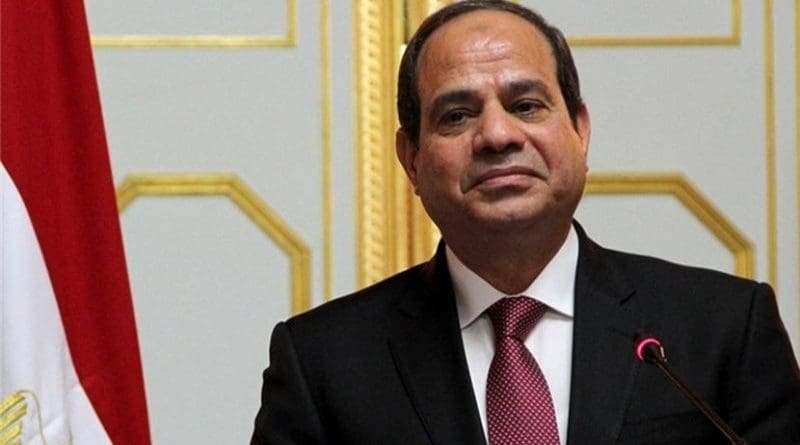Egypt: Referendum On Extending Sissi’s Rule Full Of Irregularities
By VOA
By Heather Murdock and Hamada Elrasam
As voters lined up outside the polls in Cairo Saturday, music blared and some among the crowds danced and waved Egyptian flags.
Many people held flyers with a photograph of President Abdel-Fattah el-Sissi and a green checkmark. The message? Vote “yes.”
If passed, the constitutional changes proposed in the ballot could extend the president’s rule to 2030, and deepen the military’s role in communities. The Egyptian Parliament overwhelmingly supported the changes and announced the national vote on Wednesday. Results are expected by April 27.
Opponents to the measure say the changes will roll back the democratic dreams of 2011, when a popular uprising lead to the ousting of 30-year dictator, Hosni Mubarak and that the referendum is marred by corruption and coercion. Supporters say a secure leadership will make Egypt safer and help the country climb out of economic crisis.
“The legislative impact would be basically handing over all powers to the presidency,” explained Hisham Kassem, a veteran Egyptian publisher and analyst in an interview ahead of the vote.
Many of the people at the polls said they weren’t sure exactly what changes are being proposed, but they came to show their support for the government.
Manar, 20 wore a yellow headscarf and carried an Egyptian flag when she came to vote. At first she was shy to admit she didn’t know what she was voting for, but later confidently said, “I voted yes because I think Sissi is doing great things.”
Irregularities
The outcome of the ballot is all but certain to most observers. For weeks, the Egyptian media — which are overwhelmingly pro-government — have been promoting “yes” votes and no organized opposition has emerged to challenge the message.
Additionally, “yes” vote supporters openly distribute free groceries, like oil, rice and sugar to some people who can show their finger has been dyed by the ink used to prevent voter fraud. In some cases, voters told VOA their identity cards had been confiscated, and they had to vote to get them back.
Other people at the polls told VOA they were offered money if they voted, and some students said they were paid to stand at the polls for the day.
While these kinds of irregularities are wide-spread, it is not clear exactly who is responsible. In Egypt, the government, the military and many large business interests are intertwined, with all three publicly rallying around the president to curry favor, according to Kassem, the analyst.
A bus outside of one polling station on Saturday had a sign saying “Serving People.” Hossam, a young man in a sweatshirt and jeans, waited in the bus. He was un-phased when asked where it was going.
“This is to take us to receive the money they have promised for voting,” he said.
Possible outcomes
In Cairo on Saturday, it was hard to find anyone advocating for the ballot to fail. Since ousting former president Mohammed Morsi in 2013 after mass protests calling for his resignation, Sissi’s government has been accused of jailing the opposition.
Amnesty International says the constitutional changes will “strengthen impunity for human rights violations by members of the security forces, furthering the climate of repression that already exists in the country.”
Before Ahmed Mamdouh, a university business student, told VOA he was voting ‘no’ he assured everyone listening that he supported the president, and did not object to the extension of his term.
Mamdouh said the changes will weaken the parliament, and the fact that women would be guaranteed more seats if the measure passes is not helpful.
“How I’ll benefit from that?” he asked. “It won’t matter if my representative in parliament is a man or a woman because they won’t have any authority.”
Besides extending Sissi’s current term, it will allow the president to run again for office in 2024. The military, which is huge part of the Egyptian economy, will also increase its role in the criminal justice system if the measure passes.
By Sunday, local pro-government news hailed the turn-out in many polling stations as “huge,” particularly drawing female voters. But some locals seemed indifferent, saying they were confused by the actual changes and unconvinced by those who would entice them to vote.
“The offer of the food bag is not enough for me to take time off of work,” said Wael on his way to his shift, selling leftover animal products from a butcher’s shop.
“And I don’t believe they are giving out money,” he added. “It is fine for housewives but I have to work.”

